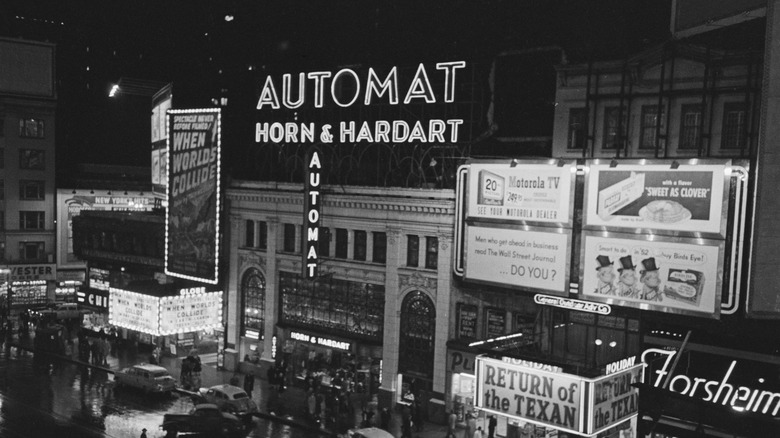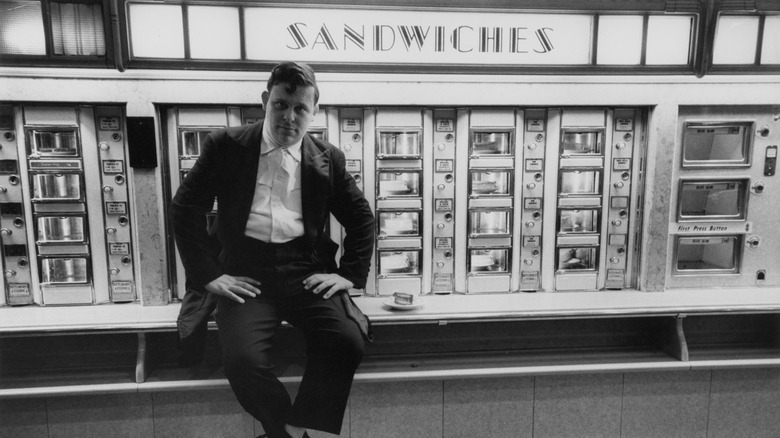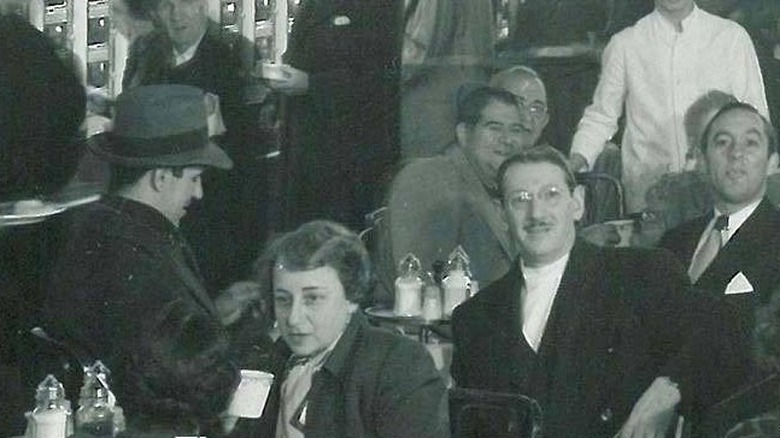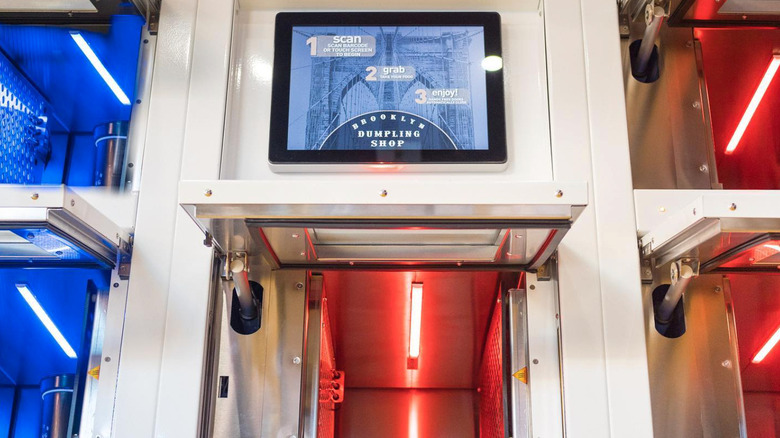NYC's Automats Were Iconic For Good Food, Better Coffee, And Inclusivity
Japan is famous for its popular vending machine culture, where citizens can purchase everything from soft drinks to ramen, bananas, and cigarettes. America's dominating convenience food comes in the form of drive-thrus and fast food chains, but before the rise of McDonald's, there was the precedent of the Automat.
After the turn of the century, the world's first so-called Automat Lunch Room opened its doors in Philadelphia in 1902, which was the pinnacle of technology-boosted dining at the time: windowed, coin-operated boxes contained hot meals. To order the food, diners slotted nickels into the machines, turned a knob, and then were given access to their meal of choice, from macaroni and cheese to pies (History.com).
The company behind the Automat, Horn & Hardart, quickly expanded to New York's Times Square, where it was an instant hit with busy workers short on time and money since no waitstaff meant no tipping was needed. One recently released documentary, The Automat, by director Liza Hurwitz, takes a closer look at this American culinary phenomenon and how it became the epicenter of good food, coveted coffee, and inclusion.
Fresh, not fast food and better coffee
While many modern vending machines stores foods and candy stocked with preservatives that can keep for a long time and are run entirely by machines, the Automat vending machines had an army of workers quite literally behind the scenes — except for the "nickel throwers" who parceled out nickels with rubber tips on their fingers in exchange for bigger coins and bills. All the food was made fresh, and any leftover food at the end of the day was sold for less to 'day-old' outlets.
Horn & Hardart's coffee was also infamously fresh since employees refreshed any pots that were unused within 20 minutes, as reported by ThoughtCo, and was so popular that they could be "considered the 1950s equivalent of Starbucks." Except their coffee was served in a ritzy art deco style, straight from a chrome spout in the shape of a dolphin's head, per Smithsonian Mag. During the 1950s, Automats sold 90 million nickel cups of coffee a year, equating to 4.5 million dollars in coffee sales.
Breaking barriers of class and race at the Automat
At the height of the Automat's popularity, 800,000 people a day were served through the cafeteria-style eatery (via Smithsonian Mag), whose concept was inspired by a German eatery. The serve-yourself style upended traditional dining rooms divided by class, as you could find wealthy investors sitting alongside blue-collar workers.
Nostalgia for such times is a strong thread in The Automat documentary. Famous people from former Supreme Court Justice Ruth Bader Ginsburg to Colin Powell to Howard Schultz (the former CEO of Starbucks) went on camera to talk about their love of the democratic Automat. RBG speaks of heading to the Automat after her piano lessons as a young girl and seeing diverse faces. Schultz recalls the exciting atmosphere of the Automat inspiring his childhood self to become a coffee merchant. Powell speaks of feeling welcome at the Automat despite being a Black kid from the Bronx whose family couldn't afford to dine in formal restaurants.
However, while people of all backgrounds mixed at the inclusive Automat, the workers behind the scenes suffered at their expense since they were paid below minimum wage and had to work overtime, and in 1937 the AFL-CIO protested locations around New York City for better treatment of workers (via ThoughtCo).
A modern day revival of Automats
Despite the decline in popularity of the Automats, with the last one standing in New York City folding on April 9, 1991 (via Britannica), there has been a recent revival of the automat concept. This is perhaps due to one of the effects of COVID, which has made restaurants focus more on convenience first and foremost. One prime example of this COVID effect is The Brooklyn Dumpling Shop, which first opened in June 2020 and features an automat format combined with a completely contactless experience (via TimeOut).
A year later, in March 2021, Automat Kitchen launched in Jersey City and offered the same style of vending machine dining, but instead of pre-made food, the meals are made to order (via Pyments). However, not more than a year later, Automat Kitchen closed its doors for good in June 2022, as reported by Jersey City Up Front. While the Automat revival has failed for the moment, twenty-four-hour available dumplings via a vending machine seem to have taken off: the Brooklyn Dumpling Shop is expanding rapidly in the New York area and is even going as far as Vancouver (via Vancouver is Awesome).



